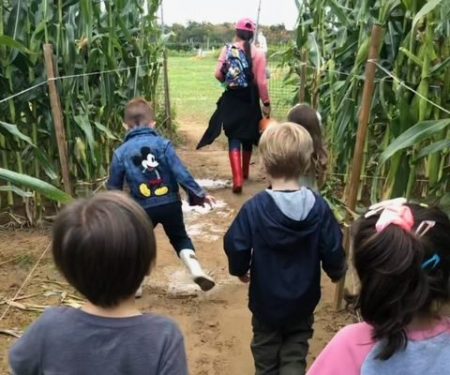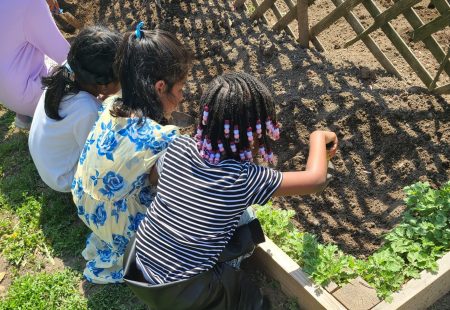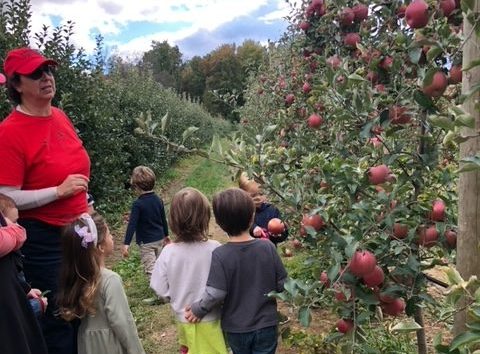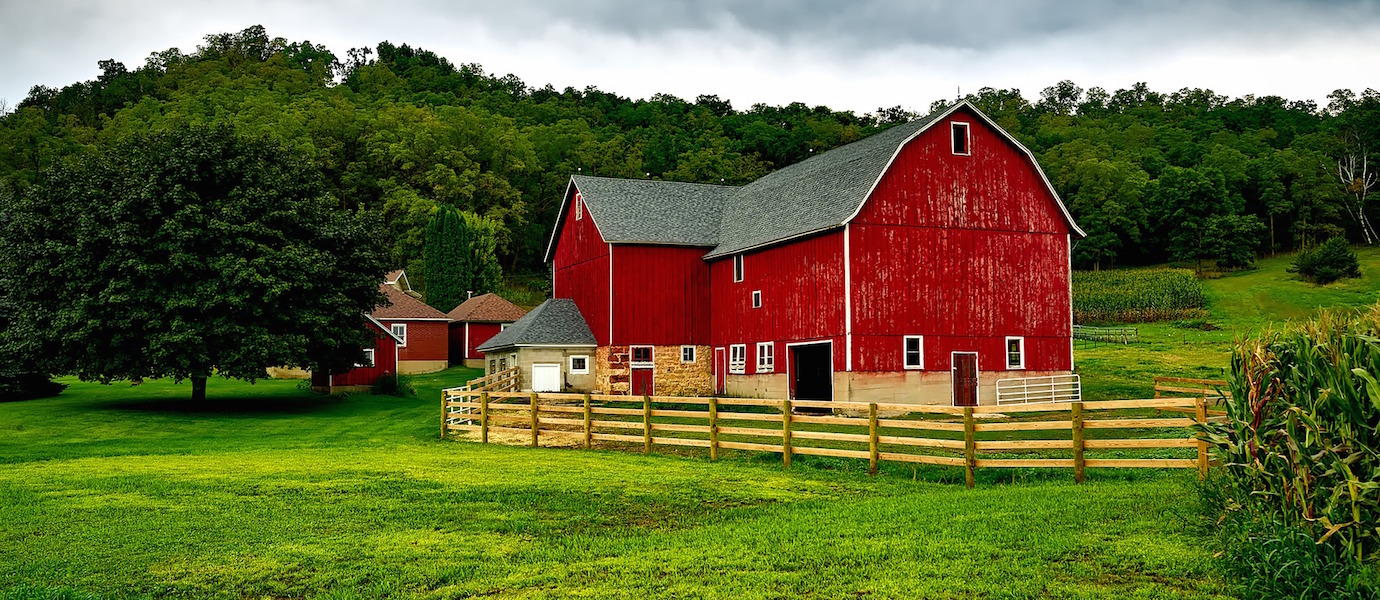
FIELD TRIPS
A school trip to Terhune Orchards is a fun and educational way to introduce students to farming, environmental topics, and where our food comes from. Depending on the season, students might explore fall crops like apples, plant seeds while learning about gardening and life cycles, or dive into lessons on water, pollination, and pollinators—with a fun craft to take home. In the fall, tours can take a walk through the corn maze, experience the excitement of harvest time, and add on apple and pumpkin picking. Every trip includes a snack of apples and apple cider as well as access to the farm play area and a visit to our barnyard animals.
supports classroom learning in:
Environmental Studies, Farm Life, Sustainability
topics covered:
Agriculture, environmental science, biology, food production, plants, nutrition, health, pollination, conservation, technology, sustainability.
contact info
Phone: 609-924-2310
Email: [email protected]
INFO
ABOUT
Terhune Orchards
At Terhune Orchards, we’re proud of our farm life—and we love sharing it with the next generation. Our educational guided tours give children a hands-on look at how farming and nature work together. Along the way, they’ll explore topics like plant parts, the water cycle, pollination, and where our food comes from. Tours include a tasty snack of fresh apples and cider. At the end of the tour, take time to visit our barnyard animals, discovery barn, and farm play area. In the fall, groups can add one pumpkin or apple picking. These fun and educational experiences are a great way to enhance classroom or homeschool lessons in science, social studies, environmental studies, New Jersey history, and more.
contact info
Hrs: Vary.
HELPFUL LESSON PLAN(S)
Prepared by FieldTripDirectory.com
Farm Lesson Plan
FUN FACTS
The average American may eat 125 pounds of potatoes each year, but corn is actually America’s number one field crop, providing ingredients for cereals, peanut butter, snack foods and soft drinks. The average person eats 68 quarts of popcorn a year alone! Use a trip to an agricultural farm to find out where our fruits and vegetables come from. Compare organic, pesticide-free, and genetically engineered crops. Research the products made possible by crops grown in the U.S. (shampoos, crayons, and baseball bats all come from agricultural products, for example). Ask your local farm about the benefits of eating local or growing your own garden.
View Lesson Plan>>
FIELD TRIPS
Our farm tours are perfect for campers of all ages! Camp groups can explore the importance of farming, how food is grown, and the value of caring for the environment—all while learning about the history of Terhune Orchards. Tours can be customized to match your group’s interests, making each visit a unique and memorable experience.
supports scout badges in:
Agriculture, Farm Life, Sustainability
topics covered:
Science, environmental science, agriculture, environmental science, biology, food production, plants, nutrition, health, pollination, conservation, technology, sustainability.
contact info
Phone: 609-924-2310
Email: [email protected]
INFO
ABOUT
Terhune Orchards
At Terhune Orchards, we’re proud of our farm life—and we love sharing it with the next generation. Our educational guided tours give children a hands-on look at how farming and nature work together. Along the way, they’ll explore topics like plant parts, the water cycle, pollination, and where our food comes from. Tours include a tasty snack of fresh apples and cider. At the end of the tour, take time to visit our barnyard animals, discovery barn, and farm play area. In the fall, groups can add one pumpkin or apple picking. These fun and educational experiences are a great way to enhance classroom or homeschool lessons in science, social studies, environmental studies, New Jersey history, and more.
contact info
Hrs: Vary.
HELPFUL LESSON PLAN(S)
Prepared by FieldTripDirectory.com
Farm Lesson Plan
FUN FACTS
The average American may eat 125 pounds of potatoes each year, but corn is actually America’s number one field crop, providing ingredients for cereals, peanut butter, snack foods and soft drinks. The average person eats 68 quarts of popcorn a year alone! Use a trip to an agricultural farm to find out where our fruits and vegetables come from. Compare organic, pesticide-free, and genetically engineered crops. Research the products made possible by crops grown in the U.S. (shampoos, crayons, and baseball bats all come from agricultural products, for example). Ask your local farm about the benefits of eating local or growing your own garden.
View Lesson Plan>>
FIELD TRIPS
Terhune Orchards offers enriching farm tours perfect for homeschoolers! Students can explore seasonal topics like spring and fall crops, environmental science, and sustainable farming. In the fall, families can add on apple and pumpkin picking, navigate the corn maze, and experience the excitement of harvest season. Each visit also includes access to the play area with our friendly farm animals as well as a fresh farm snack of apples and apple cider.
supports classroom learning in:
Environmental Studies, Farm Life, Sustainability
topics covered:
Science, environmental science, agriculture, environmental science, biology, food production, plants, nutrition, health, pollination, conservation, technology, sustainability.
contact info
Phone: 609-924-2310
Email: [email protected]
INFO
ABOUT
Terhune Orchards
At Terhune Orchards, we’re proud of our farm life—and we love sharing it with the next generation. Our educational guided tours give children a hands-on look at how farming and nature work together. Along the way, they’ll explore topics like plant parts, the water cycle, pollination, and where our food comes from. Tours include a tasty snack of fresh apples and cider. At the end of the tour, take time to visit our barnyard animals, discovery barn, and farm play area. In the fall, groups can add one pumpkin or apple picking. These fun and educational experiences are a great way to enhance classroom or homeschool lessons in science, social studies, environmental studies, New Jersey history, and more.
contact info
Hrs: Vary.
HELPFUL LESSON PLAN(S)
Prepared by FieldTripDirectory.com
Farm Lesson Plan
FUN FACTS
The average American may eat 125 pounds of potatoes each year, but corn is actually America’s number one field crop, providing ingredients for cereals, peanut butter, snack foods and soft drinks. The average person eats 68 quarts of popcorn a year alone! Use a trip to an agricultural farm to find out where our fruits and vegetables come from. Compare organic, pesticide-free, and genetically engineered crops. Research the products made possible by crops grown in the U.S. (shampoos, crayons, and baseball bats all come from agricultural products, for example). Ask your local farm about the benefits of eating local or growing your own garden.
View Lesson Plan>>
